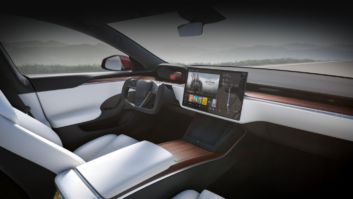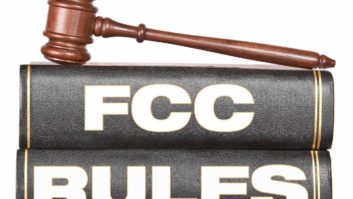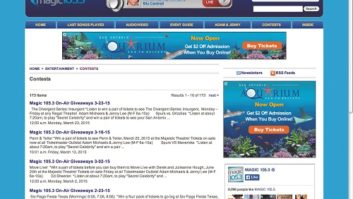Traditional radio is going to be someone’s darling again soon, at least for a time.
Media types and Wall Street analysts love a comeback story; they also love a simple story. Radio will present them both in coming months.
We saw some of this in January. After years of PR bombardment from XM and Sirius, reporters and analysts who cover radio and have often hinted at its demise, or at least its growing irrelevance, were shaken up by two big headlines.
One was the announcement of Google’s purchase of dMarc. A smart, respected new media company apparently had seen what most radio-bashers have ignored for years – radio’s vast reach, its $20 billion a year sales record, its place in the fabric of American life – and found a way to invest in it.
I found the price paid for dMarc to be astonishing given the size of the U.S. radio supply marketplace and the value of annual sales; I wondered briefly if this meant the dot-com days were coming back. But I do not pretend to be expert at valuations of software vendors, broadcast or otherwise.
Google’s rationale in explaining the purchase makes sense to me; and this isn’t a sale of a strictly hardware manufacturer, where we can guess at how many consoles or transmitters might be sold in a given year. This is a deal that goes to how radio sells its inventory, the transaction at the center of our industry. A lot of money changes hands in radio every day. Don’t be surprised if other big “outside” names take a fresh look at ol’ radio, exploring how they might claim part the action as well as how radio might fit into their proliferating empires, merging old and new media in unexpected ways.
Of greater impact over the long term will be the news that the first coordinated rollout of multicast stations have begun; this too shows that radio has game left. We’ve been reading that multicast could be the “killer app” for HD Radio, and I suspect that’s correct; certainly the promise of new content moved the business news needle in a way that the promise of digital sound never did. That’s also because the concept is easy for consumers and analysts to understand. “You can get new program channels in addition to your old ones, and all you need is to buy a new radio.” Nothing particularly complicated about that.
Watch for more stories in the general media about how traditional radio is kicking back at satellite; how XM and Sirius, by golly, also must cope with proliferating new media competition as well as very heavy Wall Street expectations; and how in radio, “what was old is new again” thanks to digital.
But the good feelings require effort to nurture. More than that, they require content. The new channels must be interesting. Radio owners and programmers must avoid any temptation to do them on the ultra-cheap. Content is king. Content is king. Content. Is. King.
We’re all listening.












